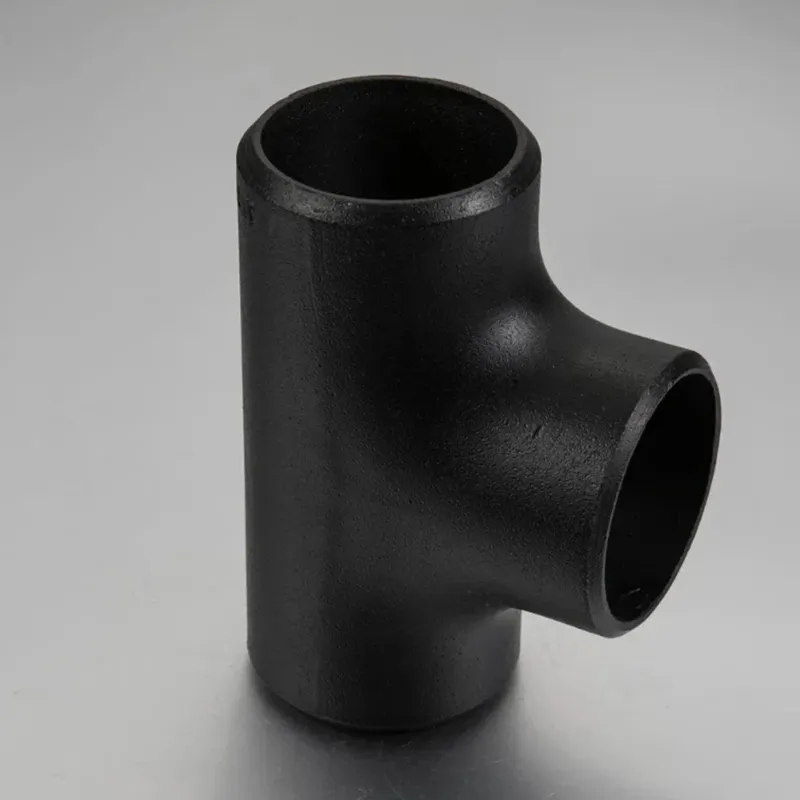-
Cangzhou Yulong Steel Co., Ltd.
-
Phone:
+86 13303177267 -
Email:
admin@ylsteelfittings.com
- English
- Arabic
- Italian
- Spanish
- Portuguese
- German
- kazakh
- Persian
- Greek
- French
- Russian
- Polish
- Thai
- Indonesian
- Vietnamese
- Zulu
- Korean
- Uzbek
- Hindi
- Serbian
- Malay
- Ukrainian
- Gujarati
- Haitian Creole
- hausa
- hawaiian
- Hebrew
- Miao
- Hungarian
- Icelandic
- igbo
- irish
- Japanese
- Javanese
- Kannada
- Khmer
- Rwandese
- Afrikaans
- Albanian
- Amharic
- Armenian
- Azerbaijani
- Basque
- Belarusian
- Bengali
- Bosnian
- Bulgarian
- Catalan
- Cebuano
- China
- China (Taiwan)
- Corsican
- Croatian
- Czech
- Danish
- Esperanto
- Estonian
- Finnish
- Frisian
- Galician
- Georgian
- Kurdish
- Kyrgyz
- Lao
- Latin
- Latvian
- Lithuanian
- Luxembourgish
- Macedonian
- Malgashi
- Malayalam
- Maltese
- Maori
- Marathi
- Mongolian
- Myanmar
- Nepali
- Norwegian
- Norwegian
- Occitan
- Pashto
- Dutch
- Punjabi
- Romanian
- Samoan
- Scottish Gaelic
- Sesotho
- Shona
- Sindhi
- Sinhala
- Slovak
- Slovenian
- Somali
- Sundanese
- Swahili
- Swedish
- Tagalog
- Tajik
- Tamil
- Tatar
- Telugu
- Turkish
- Turkmen
- Urdu
- Uighur
- Welsh
- Bantu
- Yiddish
- Yoruba

Aug . 13, 2024 04:52 Back to list
Exploring the Characteristics and Applications of A333 Grade Steel in Industrial Use
Understanding A333 and ASTM Standards Importance and Applications
The A333 specification is a critical standard established by ASTM International, an organization dedicated to developing and publishing voluntary consensus technical standards for a wide range of materials, products, systems, and services. Specifically, A333 refers to the criteria for seamless and welded steel pipe for low-temperature service, which is essential in various industrial applications, particularly in the oil and gas sector, as well as in other sectors requiring high durability and reliability under extreme conditions.
What is A333?
ASTM A333 encompasses specifications for several grades of carbon and alloy steel pipe that can maintain their mechanical properties at low temperatures, typically for temperatures below -50°F (-45°C). This specification is vital for ensuring that materials used in pipelines, pressure vessels, and other structural applications can withstand low-temperature environments without becoming brittle or fracturing.
One of the key features of ASTM A333 is its provision for different grades of steel, including A333 Grade 1 through A333 Grade 6, with each grade tailored for a specific application and working environment. For instance, Grade 6 is often used for more severe operating conditions, offering improved toughness and yield strength compared to the lower grades.
Why Are ASTM Standards Important?
ASTM standards, including A333, play a crucial role in ensuring quality and safety across numerous industries. By adhering to established standards, manufacturers and consumers can ensure that materials and products meet consistent technical requirements. This consistency improves interoperability of materials, enhances safety, and reduces the likelihood of equipment failure.
a333 astm

In highly regulated industries, such as oil and gas, adhering to standards like ASTM A333 is not only advisable but often mandatory. These standards help industries comply with governmental regulations and guidelines, which are established to protect both workers and the environment from hazards that could arise from improper material use.
Applications of ASTM A333
The applications of A333 steel pipes are vast, touching various sectors. The most common usage is in the oil and gas industry, where pipes must survive extreme weather conditions and frigid temperatures while transporting crucial materials such as oil and natural gas. In refineries and petrochemical plants, A333 pipes are essential in systems designed to operate in cold climates, ensuring fluid integrity and preventing leaks.
Moreover, A333 is also utilized in other industries requiring low-temperature service capabilities, such as chemical manufacturing, cryogenic processes, and power generation. Each of these applications demonstrates the versatility of the ASTM A333 specification, confirming its role in modern industry.
Conclusion
In conclusion, ASTM A333 is an essential standard that sets forth specifications for steel pipe used in low-temperature applications. By providing guidelines for various grades of materials, it ensures that manufacturers can supply pipes that not only meet stringent performance criteria but also contribute to the safety and efficiency of industrial operations. As industries continue to evolve and face new challenges, adherence to standards such as ASTM A333 remains a cornerstone of maintaining high quality, safety, and reliability in material use. As we look to the future, the importance of such standards will only grow, solidifying their place in the backbone of industrial development and innovation.
Latest news
-
ANSI 150P SS304 SO FLANGE
NewsFeb.14,2025
-
ASTM A333GR6 STEEL PIPE
NewsJan.20,2025
-
ANSI B16.5 WELDING NECK FLANGE
NewsJan.15,2026
-
ANSI B16.5 SLIP-ON FLANGE
NewsApr.19,2024
-
SABS 1123 FLANGE
NewsJan.15,2025
-
DIN86044 PLATE FLANGE
NewsApr.19,2024
-
DIN2527 BLIND FLANGE
NewsApr.12,2024
-
JIS B2311 Butt-Welding Fittings LR/SR 45°/90° /180°Seamless/Weld
NewsApr.23,2024











